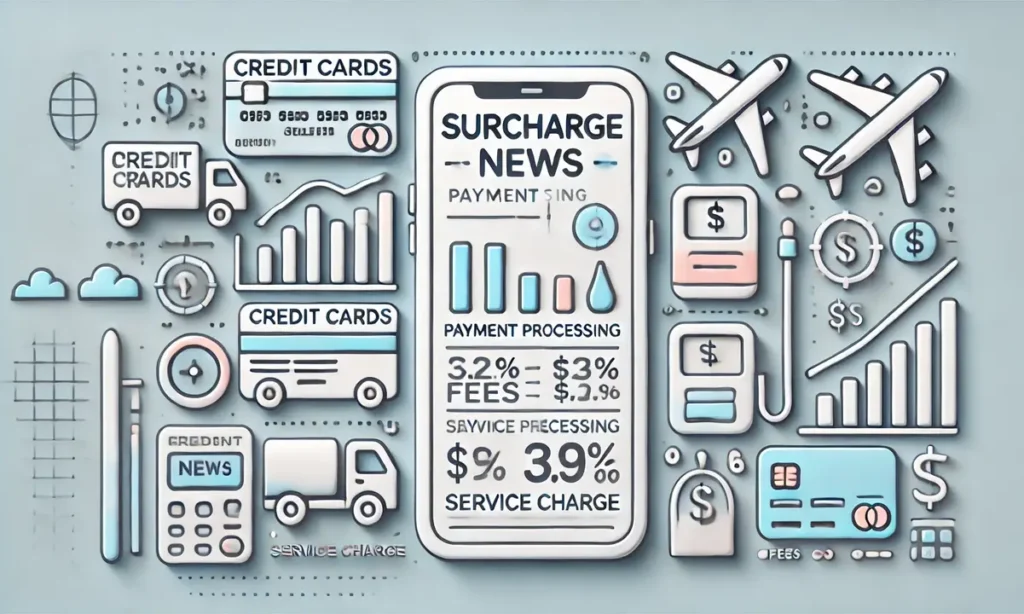
Surcharge News,In today’s fast-paced economy, the term surcharge is becoming increasingly familiar. Whether it’s on your utility bills, fuel purchases, or online shopping receipts, surcharges are an essential part of how companies manage costs and stay profitable. Staying updated with the latest surcharge news can help consumers, businesses, and policymakers make informed decisions. This comprehensive article aims to demystify surcharges, highlight recent trends, and provide valuable insights into their broader impact.
What is a Surcharge?
Surcharge News,A surcharge is an additional fee or cost added to the base price of a product, service, or transaction. Unlike taxes, which are mandated by governments, surcharges are usually imposed by companies or service providers to cover extra operational costs. Surcharges may be fixed amounts or percentages, and they can be temporary or permanent, depending on the nature of the expense being covered.
Types of Surcharges
Fuel Surcharges
Imposed by airlines, shipping companies, and transport providers to offset fluctuations in fuel costs.
Service Surcharges
Extra fees charged for specific services, such as expedited delivery, late payments, or processing fees.
Utility Surcharges
Added to electricity, water, or gas bills to cover energy price increases or infrastructure upgrades.
Credit Card Surcharges
Retailers may add a fee to cover the costs of processing payments made with credit cards.
Peak-Time Surcharges
Higher rates charged during periods of high demand, like surge pricing used by ride-hailing apps.
Why Do Surcharges Exist?
Surcharge News,Surcharges exist for several reasons, most of which revolve around offsetting operational costs or managing demand. Businesses often face fluctuating costs that are difficult to control, such as fuel prices, regulatory fees, or seasonal demand. Instead of absorbing these costs, companies pass them on to consumers.
For example, when the price of crude oil rises, shipping companies may introduce a fuel surcharge to maintain profitability. Similarly, during peak holiday seasons, ride-hailing apps like Uber or Lyft may introduce “surge pricing” to ensure availability when demand is high.
Impact of Surcharges on Consumers
Surcharges directly affect consumers’ wallets, often leading to higher overall costs. For instance:
Energy Bills
Consumers may see higher electricity bills due to environmental compliance charges or infrastructure-related fees.
Travel Costs
Airfares may increase due to fuel surcharges, especially on international routes.
E-commerce
Online shoppers may encounter “convenience fees” or “processing fees” at checkout.
Many consumers view surcharges as hidden costs that are not explicitly stated in the advertised price. For this reason, regulatory bodies in some countries require companies to clearly disclose surcharges to promote transparency.
How Do Surcharges Impact Businesses?
Surcharge News,For businesses, surcharges offer a way to maintain stability and profitability during volatile market conditions. Rather than changing the base price of products or services, companies use surcharges to reflect temporary cost increases. This strategy allows businesses to remain competitive while avoiding frequent price revisions.
For instance, logistics and transportation companies use fuel surcharges to adjust for changing fuel prices, ensuring that long-term contracts with clients remain intact. This approach also helps businesses avoid negative customer reactions to sudden price hikes.
Recent Surcharge News and Trends
Rising Fuel Surcharges Amid Fluctuating Oil Prices
Global oil prices have a direct impact on fuel surcharges. In 2023 and 2024, geopolitical tensions and supply chain disruptions caused a surge in fuel prices, leading to higher surcharges for airlines, shipping companies, and freight services. As a result, consumers experienced more expensive flights, higher shipping fees for online purchases, and elevated logistics costs for goods.
Latest Update (2024)
Some airlines, like American Airlines and Emirates, have recently adjusted their fuel surcharges following a drop in oil prices. However, experts warn that oil market volatility could prompt further changes in surcharge rates.
Credit Card Surcharge Controversy
More retailers, especially small businesses, are adding credit card processing fees or surcharges to cover the cost of accepting card payments. Since payment processors charge retailers a fee (often around 1.5% to 3%) for credit card transactions, businesses may choose to pass this cost on to customers.
Latest Update (2024)
Certain U.S. states have debated legislation to ban credit card surcharges. While some consumer advocates argue these fees are unfair, retailers contend they are necessary to manage rising operating costs. In response, some companies have started offering discounts for cash payments instead.
Utility Bill Surcharges Linked to Renewable Energy Initiatives
Utility companies are introducing surcharges to fund renewable energy projects and grid modernization. These charges, often listed as “environmental compliance fees” or “grid enhancement fees”, aim to support the transition to greener energy sources.
Latest Update (2024)
Utility regulators in several U.S. states, including California and New York, have allowed energy providers to implement temporary surcharges to fund infrastructure upgrades. While the move supports sustainability goals, consumers have voiced concerns about rising household energy bills.
Ride-Hailing Surge Pricing: A Point of Controversy
Ride-hailing platforms like Uber, Lyft, and Bolt use dynamic pricing algorithms that increase fares during periods of high demand. This practice is particularly noticeable during major events, rush hours, or inclement weather. Critics argue that surge pricing exploits consumer need, while companies defend it as a supply-demand balancing mechanism.
Latest Update (2024)
Advocacy groups are pressuring regulators to introduce rules that limit surge pricing during emergencies or natural disasters. In response, Uber has pledged to provide transparency by showing consumers the fare breakdown, including surge fees, before booking a ride.
Airline Ticket Surcharges Spark Controversy
Besides fuel surcharges, airlines have introduced new fees for checked baggage, seat selection, and in-flight meals. Passengers often feel misled when these fees aren’t included in the initial ticket price.
Latest Update (2024)
Surcharge News,European aviation regulators are investigating “drip pricing,” where airlines advertise low fares but add numerous surcharges during the checkout process. Airlines like Ryanair and EasyJet have faced criticism for their opaque pricing practices, with authorities urging them to display full costs upfront.
How to Avoid or Reduce Surcharge Costs
While some surcharges are unavoidable, consumers can use a few strategies to minimize their impact:
Use Cash Payments
Avoid credit card surcharges by paying with cash, debit cards, or direct transfers.
Book Early
Book flights and rides in advance to avoid peak-time surcharges.
Switch Providers
Look for alternative energy or utility providers with lower surcharges.
Stay Informed
Surcharge News,Track surcharge news for updates on changes in airline fees, fuel surcharges, and payment processing costs.
Are Surcharges Here to Stay?
Surcharge News,While some surcharges are temporary, others seem to be a permanent fixture of modern commerce. As operating costs fluctuate due to inflation, global crises, and technological advancements, businesses will continue to rely on surcharges to manage these expenses.
With greater consumer awareness and regulatory scrutiny, however, companies may face increased pressure to provide transparent pricing and disclose fees upfront. This push for transparency is especially strong in the airline, utility, and payment processing sectors, where consumer advocacy groups are lobbying for clearer disclosures.
Conclusion
Surcharge News,Surcharges are a key part of the modern economy, affecting everything from flight tickets to utility bills. While they are sometimes necessary for businesses to remain profitable, their growing prevalence has sparked debates about fairness and transparency. Understanding the reasons behind surcharges and staying informed on the latest surcharge news can empower consumers to make smarter financial decisions.
Surcharge News,As surcharges continue to evolve in response to regulatory changes, consumer demand, and market fluctuations, staying ahead of the news is essential. By being proactive, consumers can reduce the impact of surcharges on their expenses and advocate for fairer pricing practices.



